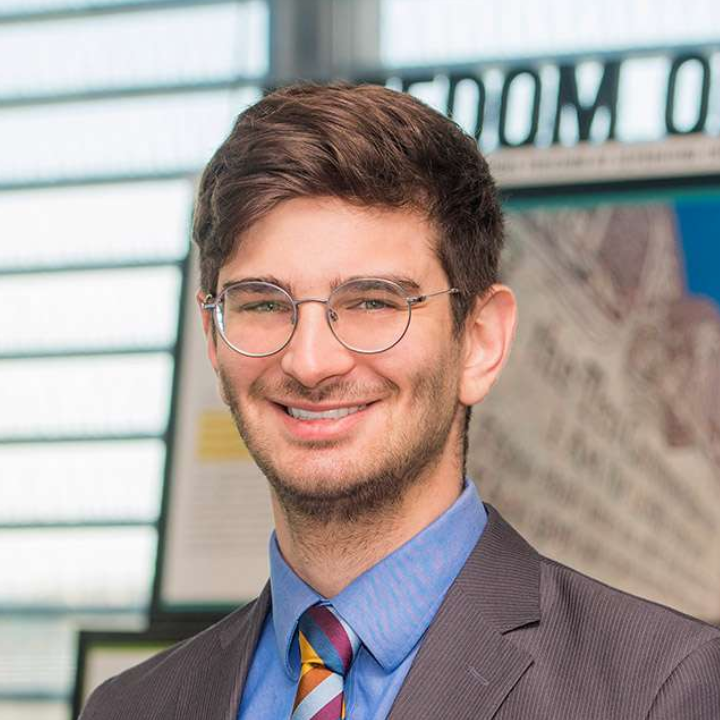
By BENJAMIN MARCUS
The COVID-19 pandemic is not under control in the United States. The disease is still deadly, especially for those who are elderly or immunocompromised. The Trump administration projects deaths per day will nearly double in the United States between now and June 1. Yet some states are starting to lift restrictions on in-person gatherings for religious communities.
In Texas, for example, an order by Gov. Greg Abbott allows in-person religious services to resume at 25 percent capacity — though congregants have to wear masks and practice social distancing. About 250 congregants gathered on Sunday, May 3 at a church in Houston to celebrate communion. (That Sunday was the fourth straight day that Texas saw more than 1,000 new confirmed coronavirus cases).
In other parts of the country, members of religious communities are challenging state stay-at-home orders in court. Last week, for example, a New Jersey Catholic priest filed suit to challenge New Jersey’s stay-at-home order, which has prohibited in-person religious gatherings. (On Sunday, New Jersey had more than 3,000 new confirmed cases and 129 deaths).
And many Americans live in states that have exempted religious gatherings either completely or in part from stay-at-home orders throughout the pandemic. In fact, a study of religious exemptions published by the Pew Research Center on April 27 found that most states have religious exemptions to social distancing rules. Florida, for example, deemed religious worship essential, like shopping for food or prescription drugs, and therefore offered exemptions from rules restricting large gatherings. (From Sunday to Monday, Florida reported more than 800 new confirmed cases and 20 new deaths).
In the coming weeks, more Americans will likely see fewer restrictions on their right to gather in person. But Americans who have the right to congregate in large groups — whether in houses of worship or non-religious spaces like gyms, restaurants and shopping malls — should avoid exercising that right. In fact, they have a responsibility to stay home whenever possible to protect the most vulnerable among us.
The U.S. Court of Appeals for the Sixth Circuit recently said as much. In a case from Kentucky, the court prohibited the state from enforcing a ban on drive-in religious services. The injunction is pending appeal. In its opinion, the court sympathized with an approach taken by Gov. Mike DeWine in the bordering state of Ohio: “As individuals, we have some sympathy for Gov. DeWine’s approach — to allow places of worship in Ohio to hold services but then to admonish them all (we assume) that it’s ‘not Christian’ to hold in-person services during a pandemic.” Notably, the opinion also recognized that federal judges should not tell individuals how to “comply with their own faith as they see it.”
Religious Americans who live in states that report an increasing or high number of new COVID-19 infections have a responsibility to forgo large in-person religious services in favor of safer alternatives that minimize physical contact. Why? Because elderly Americans, who are most at risk from COVID-19, are the backbone of many religious communities. For more than a dozen major Christian groups in the United States — including the Presbyterian Church of America, the United Church of Christ, the United Methodist Church, the Lutheran Church-Missouri Synod, the Episcopal Church, the Evangelical Lutheran Church of America, the Southern Baptist Convention and the African Methodist Episcopal Church — 50 percent of members or more are older than 50. That is also true for Jews.
Clergy themselves are also at higher risk, on average, due to their age. One study from 2017 commissioned by Pepperdine University and conducted by Barna found that more than 50 percent of pastors are over 55 years old. And of course some religious communities only allow men to serve as ordained clergy — and men are at higher risk from COVID-19 than women.
Religious services can provide profound spiritual comfort and social connection. In states struggling to contain the COVID-19 outbreak, members of religious communities should identify religious activities that can provide spiritual comfort and social connection without direct physical contact. Religious leaders might live-stream their services. Members of religious communities might stand outside the windows of the elderly or infirm to sing hymns, read scripture, or simply check on their mental, physical and spiritual wellbeing. Drive-in religious services might be a viable option if people stay in their cars. These alternatives are not optimal, but they will save lives.
And in states that report few to no new cases for multiple consecutive days, people might choose to attend in-person services. Whether or not the state requires it, congregants should do what they can to prevent another outbreak by wearing masks, disinfecting high-touch surfaces and maintaining social distance. People with symptoms should stay home. Outdoor services might be preferable to services in small, confined spaces with poor circulation.
You might have the right to gather in person with your religious community during an uncontrolled pandemic, but you also have the freedom to act in the interest of our country as a whole. Exercise your rights responsibly.
. . .
Benjamin P. Marcus is religious literacy specialist at the Religious Freedom Center of the Freedom Forum Institute. His email address is: bmarcus@freedomforum.org.





